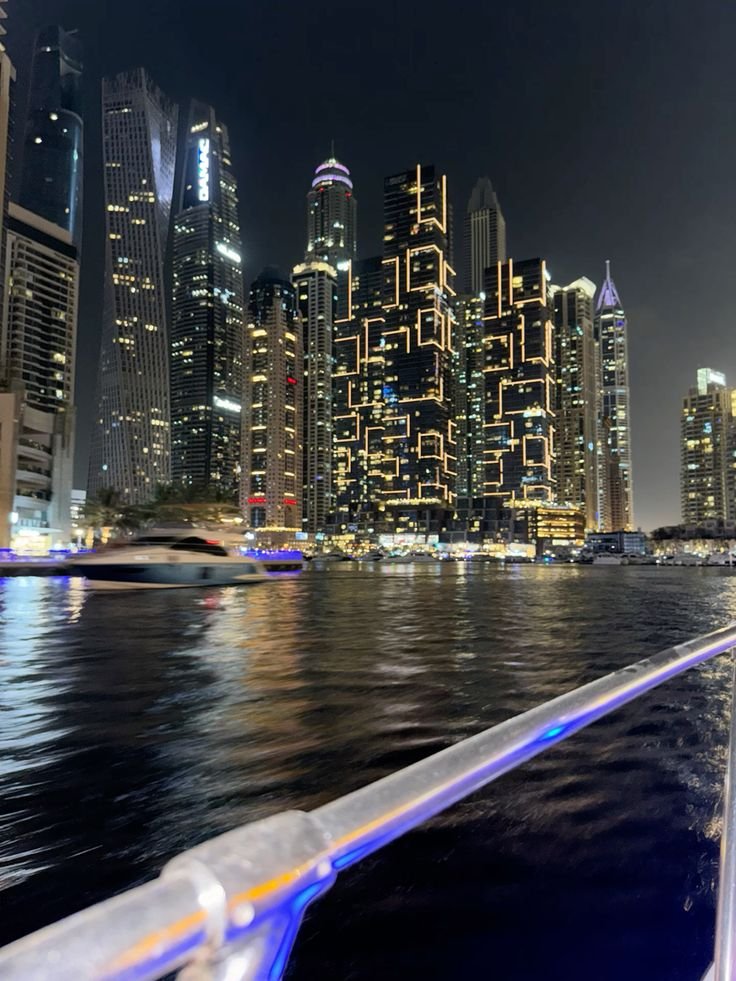Dubai’s emergence as a leading global business hub has been fueled by its strategic tax policies, which prioritize competitiveness, investment attraction, and economic growth. While historically known for its tax-free status, Dubai has recently introduced new fiscal measures aimed at fostering sustainability and aligning with global standards. This article provides a detailed look at Dubai’s evolving tax landscape, its impact on foreign investment and economic diversification, and the challenges businesses may encounter in the region.
The Evolution of Dubai’s Tax Framework
Dubai’s early economic strategy centered around offering a tax-free environment, which set it apart from other global markets. The absence of personal income taxes and minimal corporate taxes positioned the emirate as a highly attractive destination for expatriates, entrepreneurs, and multinational companies. This approach successfully drove rapid economic development, particularly in real estate, tourism, and trade.
However, recognizing the need for revenue diversification and long-term economic resilience, Dubai has implemented key tax reforms over the past decade:
- Introduction of Value Added Tax (VAT):
In January 2018, the UAE introduced a 5% VAT, marking a major shift in its tax structure. This policy was implemented to broaden revenue sources and reduce the emirate’s reliance on oil revenues. Despite its modest rate, VAT has provided a significant stream of non-oil income, funding infrastructure and social initiatives without burdening businesses excessively. - Corporate Tax Introduction:
In June 2023, the UAE rolled out a 9% corporate tax on business profits exceeding AED 375,000 (approximately USD 102,000). While the shift marked a departure from Dubai’s traditional tax-free model, the rate remains competitive compared to global standards. Importantly, businesses operating in free zones continue to enjoy exemptions, ensuring Dubai retains its appeal to international investors.
These reforms reflect Dubai’s proactive approach to balancing tax competitiveness with fiscal sustainability, aligning with international tax norms while preserving its business-friendly reputation.
Impact on Foreign Direct Investment (FDI)
Dubai’s tax policies have been a magnet for foreign direct investment (FDI), contributing to its status as a global hub for trade, finance, and innovation. Several factors explain this success:
- Cost-Efficient Operations:
The introduction of a 9% corporate tax, while significant, remains far below the global average, where rates often exceed 20-25%. This low-tax environment reduces operational costs for businesses, enabling higher profitability and reinvestment. - Free Zone Advantages:
Dubai’s free zones, including Jebel Ali Free Zone (JAFZA) and Dubai Multi Commodities Centre (DMCC), offer exemptions from corporate taxes, import/export duties, and full foreign ownership rights. These benefits are particularly attractive to startups, SMEs, and multinational corporations. - Strategic Location:
Dubai’s geographical position as a gateway between Europe, Asia, and Africa amplifies its appeal for businesses seeking access to regional and global markets. Competitive tax policies complement this strategic advantage, attracting multinational companies to establish regional headquarters in the emirate.
As a result, Dubai remains one of the leading FDI destinations in the Middle East, particularly in sectors such as technology, logistics, real estate, and financial services.
Economic Diversification and Long-Term Growth
Dubai’s tax policies align with its broader vision of economic diversification. Historically reliant on oil revenues, the UAE—through initiatives like Vision 2021 and Operation 300bn—has worked to develop non-oil sectors as engines for growth. Revenue generated from VAT and corporate taxes is being reinvested into key industries, including:
- Tourism:
Dubai remains a global leader in luxury and experiential tourism, supported by investments in world-class infrastructure and iconic attractions like Expo City Dubai and Dubai Mall. - Technology and Innovation:
Competitive tax policies incentivize investment in emerging technologies such as artificial intelligence, fintech, and green energy solutions, aligning with Dubai’s goal to position itself as a global innovation hub. - Renewable Energy:
Projects like the Mohammed bin Rashid Al Maktoum Solar Park underscore Dubai’s commitment to sustainability, funded partly by revenues from its diversified tax framework. - Financial Services:
With hubs like the Dubai International Financial Centre (DIFC), Dubai attracts global financial firms by combining regulatory efficiency with a favorable tax environment.
These reinvestments support sustainable growth, ensuring Dubai continues to evolve as a modern, diversified economy that can thrive beyond oil.
Favorable Business Environment
Despite introducing VAT and corporate tax, Dubai remains a highly competitive business destination thanks to the following:
- Free Zones:
Businesses operating in free zones continue to benefit from tax exemptions, streamlined registration processes, and full repatriation of profits. These zones cater to a variety of industries, including trade, technology, and manufacturing. - Ease of Doing Business:
Dubai consistently ranks among the world’s top cities for ease of doing business due to its regulatory transparency, simplified processes, and investor-friendly policies. Reforms such as digital government platforms have further accelerated business setup and compliance. - World-Class Infrastructure:
Dubai’s continued investments in transportation, logistics, and digital infrastructure enhance its appeal for businesses seeking efficiency and connectivity.
These advantages ensure that Dubai remains a top choice for businesses, even as it adapts to evolving global tax frameworks.
Challenges and Considerations
While Dubai’s tax policies offer considerable benefits, businesses must address several challenges:
- Compliance Requirements:
Businesses must adapt to new regulations, including corporate tax filings and VAT reporting, requiring robust accounting systems and professional support. - Global Tax Competition:
As other jurisdictions improve their tax incentives, Dubai must continuously innovate to retain its competitive edge in attracting global businesses and investors. - OECD Alignment:
International frameworks, such as the OECD’s minimum global tax initiative, may prompt further adjustments to Dubai’s tax policies in the coming years. Businesses must remain adaptable to these changes.
The Path Forward for Dubai
Dubai’s evolving tax policies reflect a strategic balance between maintaining competitiveness and securing sustainable revenue streams. The emirate’s commitment to reinvesting tax revenues into infrastructure, innovation, and economic diversification highlights its forward-thinking approach.
For businesses, Dubai remains an attractive destination due to its low tax rates, thriving free zones, and ease of doing business. Staying informed about regulatory changes and leveraging tax advantages will allow companies to maximize opportunities in this growing economic hub.
As Dubai continues to adapt to global trends, its competitive tax framework will remain a cornerstone of its success, reinforcing its position as a leader in investment, innovation, and economic growth.




